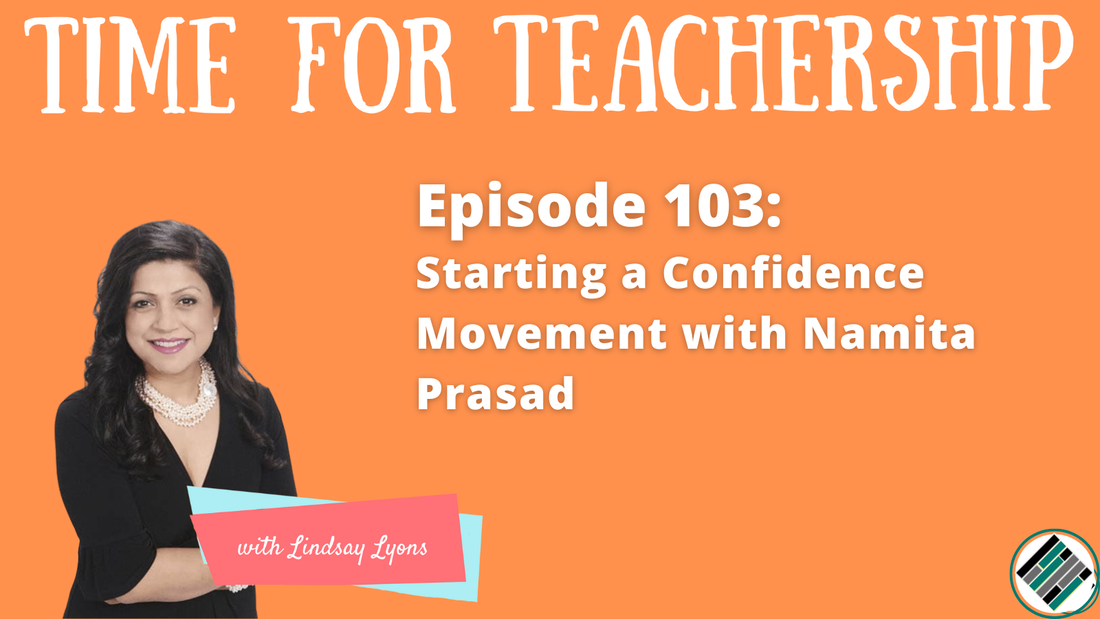
Listen to the episode by clicking the link to your preferred podcast platform below:
Namita Prasad is a confidence educator. When times were tough in her life she has had to rely on the “why not” or “Confident Mindset” approach that her father instilled in her as a child. She and her team created a school program so that all children understand how to become confident. Today, we talk about her approach to teaching confidence!
The Big Dream Educators and caretakers will believe and adopt the approach that, “No one is born confident, but anyone can become confident.” She’s excited for this dream to turn into a reality within a few years! Namita found confidence means different things to different people. So, she and her team define confidence as: A feeling that you don’t start out with. You get the feeling after actions of practice. Alignment to the 4 Stages: Mindset, Pedagogy, Assessment, and Content A culture of relationship-building is a good foundation for this work. Namita suggests a quick, powerful practice called the One-Word Check-In. Adults can ask each child as they enter the school or class or home how they feel in one word. Additionally, the culture should foster 3 pillars: courage, character, and commitment. Student voice is a major part of Namita’s ACM (A Confident Mindset) Program. In the program, students self-evaluate and tell adults their strengths, areas for growth, and fears. They develop their action plan and create their own Circle of Confidence (in step 6), which includes identifying people who are their “rocks” and “champions” and asking if each of those people are willing to be part of their Circle of Confidence. ACM’s 6 Steps:
Namita’s tip for giving feedback: In 2 minutes:
Namita believes A Confident Mindset is critical for us to be able to face the challenging realities of the world. She says it’s most effective when we all take this approach as adults and children in all areas of our lives. Challenges Adults often put lots of pressure on ourselves and think we can’t help children be confident if we are not confident ourselves. That’s not required! We can learn with our children. Another challenge is thinking we are too busy to do this work, but it’s actually a one-time “forever change,” in our mindset that we can keep practicing in all the things we regularly do. One Step to Get Started Ask yourself: What is YOUR “Why not?” Then, go practice! Remember: Mindset comes before skill set. First, have a confident mindset or a mindset that’s positive and then try to learn a skill set. Stay Connected You can find this week’s guest on her website and Facebook. To help you implement A Confident Mindset, Namita is sharing tons of free resources with you. And, if you’re looking for more details on the ideas in this blog post, listen to episode 103 of the Time for Teachership podcast. If you’re unable to listen or you prefer to read the full episode, you can find the transcript here. Quotes:
If you enjoyed this episode, you may also want to check out this video on student voice in decision making:
0 Comments
Leave a Reply. |
Details
For transcripts of episodes (and the option to search for terms in transcripts), click here!
Time for Teachership is now a proud member of the...AuthorLindsay Lyons (she/her) is an educational justice coach who works with teachers and school leaders to inspire educational innovation for racial and gender justice, design curricula grounded in student voice, and build capacity for shared leadership. Lindsay taught in NYC public schools, holds a PhD in Leadership and Change, and is the founder of the educational blog and podcast, Time for Teachership. Archives
May 2024
Categories |

 RSS Feed
RSS Feed